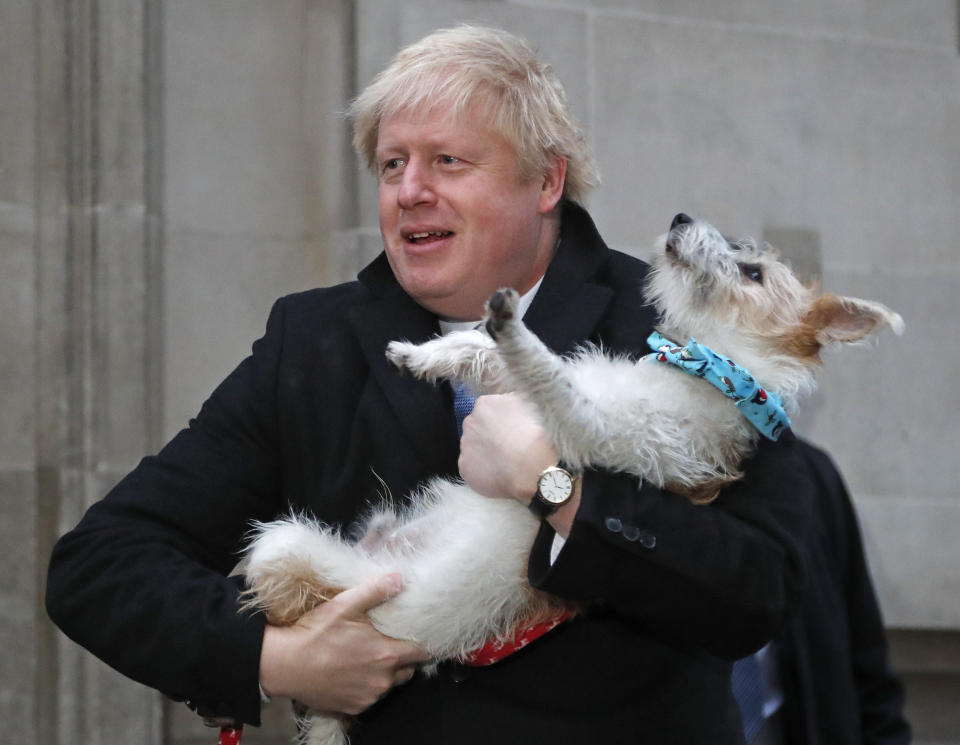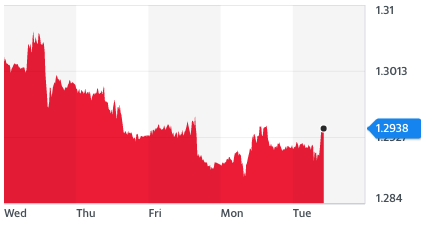UK economy flatlined ahead of election

UK economic growth flat-lined at the end of 2019, as Brexit uncertainty, troubles in the motor industry, and the general election weighed on the economy.
The Office of National Statistics (ONS) on Tuesday said preliminary estimates suggest UK GDP grew by 0% in the fourth quarter when compared with the prior three months. The ONS also revised up third quarter growth to 0.5%, marking a particularly sharp quarter-on-quarter slowdown.
“There was no growth in the last quarter of 2019 as increases in the services and construction sectors were offset by another poor showing from manufacturing, particularly the motor industry,” said Rob Kent-Smith, the ONS's head of GDP.
Total business investment shrunk by 1% in the fourth quarter, which was worse than analysts had expected.
Economists said lingering uncertainty over Brexit and December’s general election likely weighed on activity.
"The extent of political and economic uncertainty towards the end of last year has been laid bare with the economy spluttering to a halt," said Seamus Nevin, chief economist at Make UK, which represents the manufacturing sector.
Read more: Chancellor’s spending spree will only have ‘modest’ impact on GDP
The ONS data suggests the UK economy grew by 1.4% across 2019 as a whole. That is slightly better than the 1.3% recorded in 2018 but still one of the slowest growth rates since the financial crisis in 2008 and 2009.
However, the data pointed to a pick-up in activity at the very end of the year. An estimate of month-on-month growth for December showed GDP grew by 0.3% in the month. That marked a big swing from the -0.3% contraction suffered in November and was better than analysts had forecast.
The rebounded was partly driven by a recovery for the manufacturing and industrial sector. Manufacturing production grew by 0.3%, compared to a -1.7% contraction in November, and industry grew by 0.1%, compared to a -1.2% contraction in the prior month. However, both figures were below analysts’ forecasts.
Pound rises as traders think Bank will hold
Traders looked past the weaker-than-expected manufacturing and industrial figures, instead reasoning that the upturn in growth towards the end of the period means the Bank of England is now unlikely to cut interest rates.
“Overall, the UK’s GDP number has confirmed that the Bank doesn’t need to change its stance towards its monetary policy,” said Naeem Aslam, chief market analyst at Avatrade.
Shortly after the announcement, the pound was up 0.7% against the euro (GBPEUR=X) to €1.1852 and up 0.4% against the dollar (GBPUSD=X) to $1.2936.

Morgan Stanley said it expects UK growth to rebound in the first quarter of 2020.
“Soft data... point to a strong rebound at the start of 2020, and our 1Q20 growth forecast currently stands at 0.3%,” economists wrote in a note sent to clients ahead of Tuesday’s data.
"After a frustratingly stop-start year, the economy limped to the end of 2019 and avoided a contraction by the narrowest possible margin," said Karim Yousfi, chief global strategist at Audacity Capital.
“By the lacklustre standards of the past few years, this is a passable GDP report."
Recent survey data suggests industry enjoyed a ‘Boris bounce’ in the wake of the prime minister’s surprisingly convincing election victory in mid-December. PMIs for the manufacturing, construction, and service sectors all rebounded strongly in January. PMIs are a closely watched measure of expected future growth.

 Yahoo Finance
Yahoo Finance 